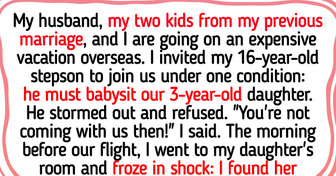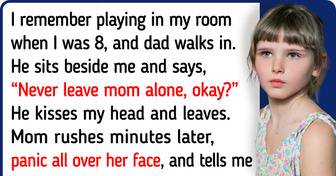My In-Laws Demanded That I Pay for Everyone at the Family Dinner and Here Is What I Did

Get ready for the ultimate sleepover! Twelve brave volunteers are about to go through a space-like experience without leaving the comfort of their beds — literally. This crazy experiment involves staying in bed for a whopping two months! But this isn’t your ordinary slumber party. These volunteers are actually helping scientists figure out how to keep astronauts’ muscles strong during space travel.
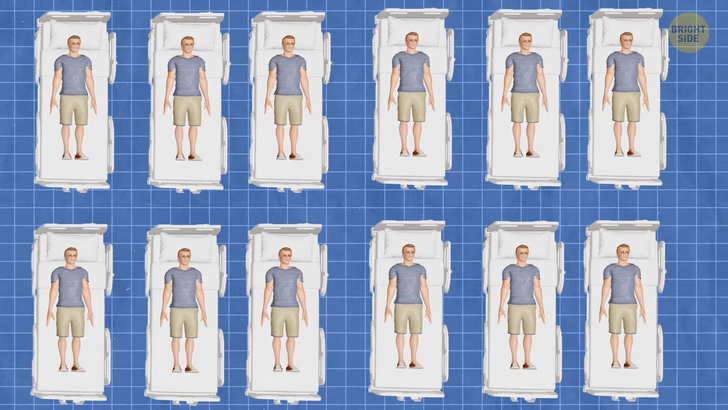
In space, our bodies go through some crazy changes. You see, we humans are perfectly designed to thrive on our lovely planet Earth. The atmosphere and gravity take care of us, keeping everything in balance. But once we leave our cozy home, things start to get tricky. Scientists are even saying that we might need to tweak our DNA to make space travel safer and easier.
Let’s talk about microgravity, the big bad wolf of long space missions. It’s when astronauts float around like weightless superheroes, effortlessly pushing heavy objects through the air. Sounds fun, right? Well, it may be cool at first, but it wreaks havoc on our bodies. Our muscles need regular exercise and movement to stay healthy and grow. But in space, there’s not enough weight and resistance for the muscles to work against. As a result, they don’t get the workout they need, and that’s when trouble starts.
Within just a few days of floating around in microgravity, astronauts can lose up to 20% of their muscle mass! That’s a lot. The muscles that suffer the most are the ones responsible for walking and keeping us upright, like the ones in our legs and trunk. So, why does this happen? Well, it turns out that in space, the muscle cells don’t produce as many proteins as they do on Earth. And proteins are like the building blocks that make our muscles strong and healthy. Without enough of them, the muscles weaken and shrink.
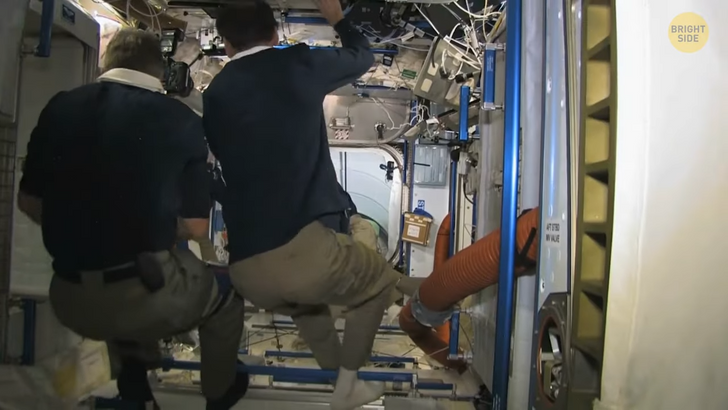
Scientists have been studying this interesting phenomenon, and they’ve found that it’s not about the muscles breaking down. Instead, it’s more about the muscle cells not making enough new proteins. It’s like the muscle-building factories slow down in space. Scientists, of course, were scratching their heads. After all, astronauts need to be strong to do their jobs and move around when they come back to Earth or explore the Moon and Mars.
So, they started researching how we can help people keep their muscles in microgravity. This would be very useful not only for astronauts now, but also in the future when we decide to go to Mars, for example. And now, we’re going back to the recent study! This study was funded by France’s space agency.
So, what was the idea? Well, imagine lying on a bed angled 6 degrees below the horizontal, with your feet up in the air. And get this: you’ll have to stick to the bed for everything, even showering and using the bathroom. But here’s the catch — no matter what, at least one shoulder must always touch the mattress. This funny position causes blood and fluid to rush to your head, just like in space.
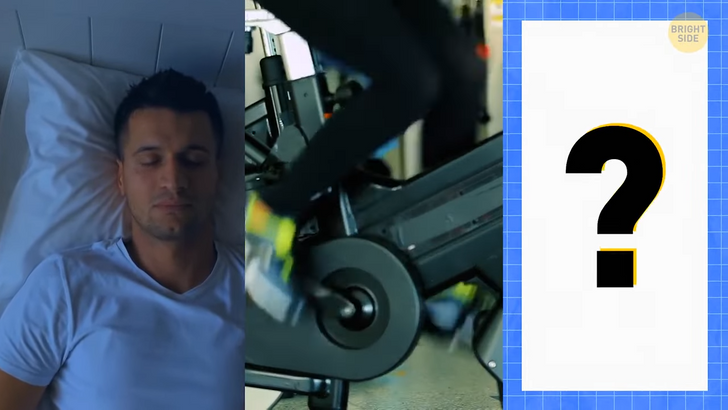
Over time, this will make your muscles weak, just like what happens to astronauts during long missions. But fear not, there’s a plan to fight muscle loss! The volunteers will be divided into three groups. The first group gets to rest the whole time (lucky ducks!). The second group will pedal away on an exercise bike attached to the space bed, mimicking the routine of astronauts in space. And the third group gets to have some extra fun — they’ll cycle while being spun around in a centrifuge machine. It’s like being on a cosmic amusement park ride!
The scientists hope to discover the magic of artificial gravity. By adding this spin to the exercise routine, they aim to counteract the loss of gravity experienced in space. Who knows, maybe it will even enhance the muscle gains from exercise. Meanwhile, NASA scientists are also trying to solve this problem. They also want to understand why our muscles get weak in space and how to stop it. They compare people in space to people on Earth to see what’s different.
So, what have they discovered so far? Well, a healthy diet and exercise saves the day as always! Exercise is a super important way to keep our muscles strong throughout our lives. High-intensity workouts are like the superheroes of muscle health. The astronauts on the space station have a special machine called the Advanced Resistive Exercise Device, or ARED, to help them stay strong. Astronauts on the space station get a “prescription” for over two hours of exercise every day. That’s a lot of jumping and stretching in the space gym!
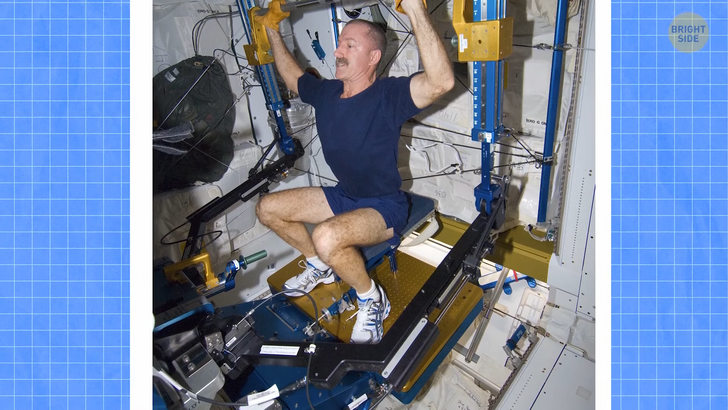
And don’t forget about a healthy diet! Eating the right vitamins and minerals can protect our muscles from atrophy. It’s like giving them the fuel they need to stay strong. As NASA plans missions to the Moon and Mars, they want to make sure astronauts stay strong and healthy. They’re doing more research on the space station to find the best ways to keep our space travelers in tip-top shape.
For example, recently they funded a super interesting study that lasted 70 days. Now, they couldn’t use real astronauts as test subjects because, well, that would be impossible. Instead, they found volunteers who were willing to go through something called “Head Down Bed Rest” for 70 days. It’s a way to simulate the microgravity environment that astronauts experience. They had a bunch of guys, around 35 years old, take part in the study. Some of them just rested in bed without exercise or supplements (the control group), while others exercised with a placebo, and some got testosterone injections and exercise. In total, there were 24 brave volunteers.
During the study, the researchers took small samples of a muscle in the thighs. They wanted to check out the proteins in those samples to see what was happening with the muscles. And guess what? The researchers made some cool discoveries! They found out that exercise can make a big difference. When people exercised, the proteins in their muscles became healthier and better organized. It’s like tidying up your room and making everything neat and tidy!
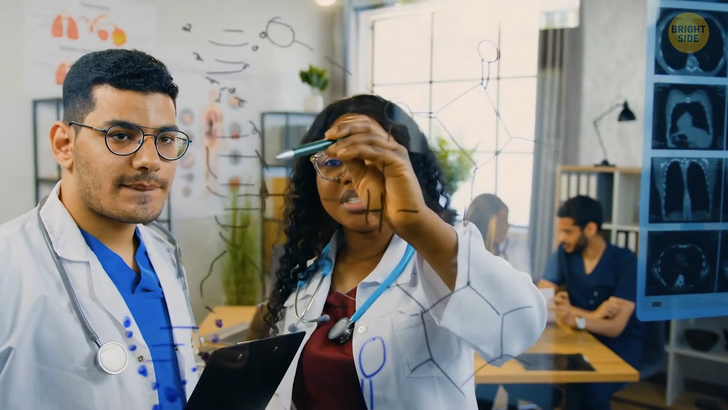
They also tested a hormone called testosterone. And guess what that hormone did? It made the muscles grow even more than exercise alone. Pretty powerful stuff, right? And the best part is, the researchers found some special markers in their test subjects that can help predict muscle loss. It’s like having a crystal ball for muscles! They can also tell if someone will respond well to exercise and treatment.
In the future, these markers could help create personalized programs for each astronaut. They can figure out the best exercises and hormones to keep their muscles strong and healthy. It’s like having a tailor-made plan just for you! The knowledge gained from all these researches could be useful for more than just astronauts. It could help design better treatments for the elderly, as well as patients with other similar conditions right here on Earth. So, let’s cheer on these brave volunteers.
But muscle loss isn’t the astronauts’ only problem. As if that wasn’t enough, there’s also cosmic radiation — superfast particles zipping through space like speedy racers. They can be quite harmful too. Also, living in space means spending a long time away from friends and family, all alone in a tiny spacecraft. Talk about isolation! Plus, the spaceship itself is as cramped as can be. It’s like living in a closet for months on end.
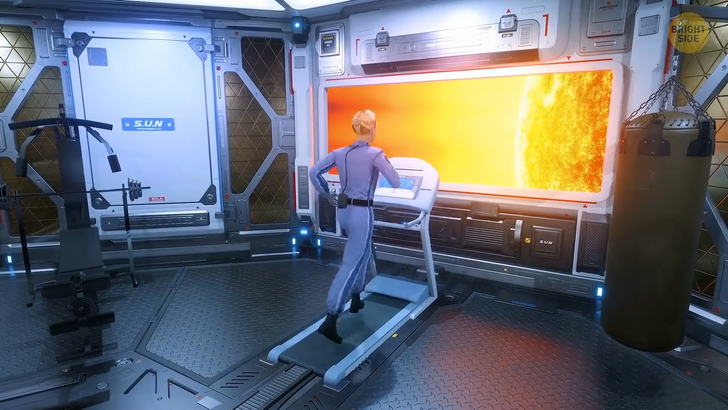
As you can see, our bodies face tons of changes in microgravity, and usually not for the better. So we need to address not only this issue but also several others. However, it’s better to tackle them one by one, right? It’s pretty fascinating how our bodies react to different environments.
So, let’s cheer on those researchers as they unlock the secrets of strong health in space. They’re helping our astronauts stay fit for their adventures. And maybe even finding ways to keep our muscles strong right here on our home planet! How awesome is that? Stay tuned!



